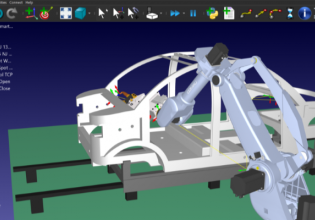B
I'd like to address some of the statements made by some people about the use of the title "engineer".
First off, in the state in which I live (Illinois), my understanding is that it is not illegal to provide "engineering" type services by non-PEs as long as the word 'engineer" does not appear in name of the business. Its much the same as someone providing bookkeeping and other accounting type services without being a CPA.
Second, what benefit to anyone (other then the PEs) is there in requiring anyone with such a title to pass the EIT and then the PE test??? The fact is that the vast majority of people holding PE registrations that I have run across perform little or no actual engineering. Many are sales persons or managers. A fair number of them spend their time affixing their precious seals to the work of others, many times with only a vague clue of the underlying work that was done. I fully expect outrage from the PE community over this statement, but quite frankly, thats been my experience.
After all, what does a PE registration represent? In most states it means only that someone has passed the EIT test, thern spent some time doing "engineering" work, than passes another test. Much of the time, the work
that passes for the PE's experience, is only remotely related to any serious engineering work. I know of a number of PEs who spent all of that time as salesmen. Does anyone believe they gained any serious engineering experience selling technical equipment??
As best I can tell, the EIT test serves primarily to force the engineering schools to require certain obscure courses (Fortran was a biggie until a few years ago), that should have long ago been dropped. The time wasted on some
of these courses could have been put to good use teaching the students something useful, but instead the coursework has to focus on things of little practical benefit.
I happen to have an older EIT study guide on the book shelf. Some time ago I thought it might be useful to become a PE so I acquired this book. The book describes the EIT test. Only a few sections could even remotely be said to apply to normal control problems. Much of it is oriented towards mechanical engineering problems, materials, etc. Things that I never seem to miss while designing control systems.
BTW-I readily admit my degree skipped a few of these things (I have a BSEET). I did take statics and dynamics from a local college here in town a few years back (I got the only "A"). I really enjoyed it and if there was a practical way for me to have done so I would have "upgraded" by degree to a BSEE and maybe gone for the EIT and later PE tests. As best I could tell, I would have basically had to retake all but a few courses (including such things as a couple semesters of calculus I already had), and I just was not upto all that work for the extra peice of paper.
I suspect that if I really was interested, I could go take the EIT review class that is offered, and with some serious work for a few months could probably pass the EIT (although it has been a VERY long time).
I am not at all offended that network engineers use the title. In a real sense they do very serious engineering work. They design systems, solve problems, and perform other duties in cyberspace that other engineers perform in a more physical sense.
I do realize that the natural progression is towards more and more PEs in my line of work, and I would strongly suggest anyone who wants to get into the field to attend a "real" engineering school, take the EIT cram class, and pass the damn thing. If nothing else, its a merit badge to impress the HR people with.
Bob Peterson
First off, in the state in which I live (Illinois), my understanding is that it is not illegal to provide "engineering" type services by non-PEs as long as the word 'engineer" does not appear in name of the business. Its much the same as someone providing bookkeeping and other accounting type services without being a CPA.
Second, what benefit to anyone (other then the PEs) is there in requiring anyone with such a title to pass the EIT and then the PE test??? The fact is that the vast majority of people holding PE registrations that I have run across perform little or no actual engineering. Many are sales persons or managers. A fair number of them spend their time affixing their precious seals to the work of others, many times with only a vague clue of the underlying work that was done. I fully expect outrage from the PE community over this statement, but quite frankly, thats been my experience.
After all, what does a PE registration represent? In most states it means only that someone has passed the EIT test, thern spent some time doing "engineering" work, than passes another test. Much of the time, the work
that passes for the PE's experience, is only remotely related to any serious engineering work. I know of a number of PEs who spent all of that time as salesmen. Does anyone believe they gained any serious engineering experience selling technical equipment??
As best I can tell, the EIT test serves primarily to force the engineering schools to require certain obscure courses (Fortran was a biggie until a few years ago), that should have long ago been dropped. The time wasted on some
of these courses could have been put to good use teaching the students something useful, but instead the coursework has to focus on things of little practical benefit.
I happen to have an older EIT study guide on the book shelf. Some time ago I thought it might be useful to become a PE so I acquired this book. The book describes the EIT test. Only a few sections could even remotely be said to apply to normal control problems. Much of it is oriented towards mechanical engineering problems, materials, etc. Things that I never seem to miss while designing control systems.
BTW-I readily admit my degree skipped a few of these things (I have a BSEET). I did take statics and dynamics from a local college here in town a few years back (I got the only "A"). I really enjoyed it and if there was a practical way for me to have done so I would have "upgraded" by degree to a BSEE and maybe gone for the EIT and later PE tests. As best I could tell, I would have basically had to retake all but a few courses (including such things as a couple semesters of calculus I already had), and I just was not upto all that work for the extra peice of paper.
I suspect that if I really was interested, I could go take the EIT review class that is offered, and with some serious work for a few months could probably pass the EIT (although it has been a VERY long time).
I am not at all offended that network engineers use the title. In a real sense they do very serious engineering work. They design systems, solve problems, and perform other duties in cyberspace that other engineers perform in a more physical sense.
I do realize that the natural progression is towards more and more PEs in my line of work, and I would strongly suggest anyone who wants to get into the field to attend a "real" engineering school, take the EIT cram class, and pass the damn thing. If nothing else, its a merit badge to impress the HR people with.
Bob Peterson






